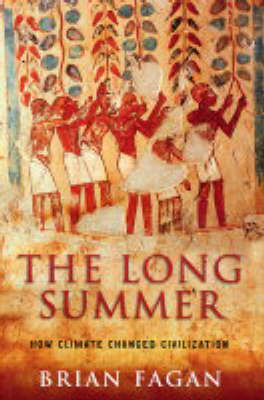The Earth's climate has always been in flux: glacial periods and warm ones have slowly and relentlessly alternated for millennia. But the period of global warming of the last 15,000 years is without precedent, and it set the conditions which enabled civilization to arise. It is our 'long summer'. From the almost unimaginably hostile climate of the late Ice to the onset of 'Little Ice Age', which began in 1315 and lasted half a millennium, this book tells the remarkable story of how human history has been influenced by the planet's ever-changing climate. Brian Fagan deploys all the resources of the new climatology to reveal the complex interplay between human development and the weather. He shows that human beings have proved themselves to be at their most resilient and adaptable when the Earth's volatile climate has posed the greatest challenges: severe droughts in southwestern Asia, the drying of the Sahara brought cattle people to the Nile Valley with their distinctive ideas of leadership, and the ripple effects of the Medieval Warm Period had very different and profound impacts in Europe and the Americas.
Confronted with such challenges, our ancestors time and again rose to meet them. Besides allowing us an previously unattainable understanding of the forces which shaped the lives of our distant ancestors, the revolutionary advances in climatology of the past quarter century provide us, for the first time, with a historical context in which to understand the unprecedented global warming of today, as we try to anticipate an uncertain climatic future.
- ISBN13 9781862076440
- Publish Date 27 May 2004 (first published 4 December 2003)
- Publish Status Out of Print
- Out of Print 26 July 2016
- Publish Country GB
- Imprint Granta Books
- Format Hardcover
- Pages 320
- Language English
